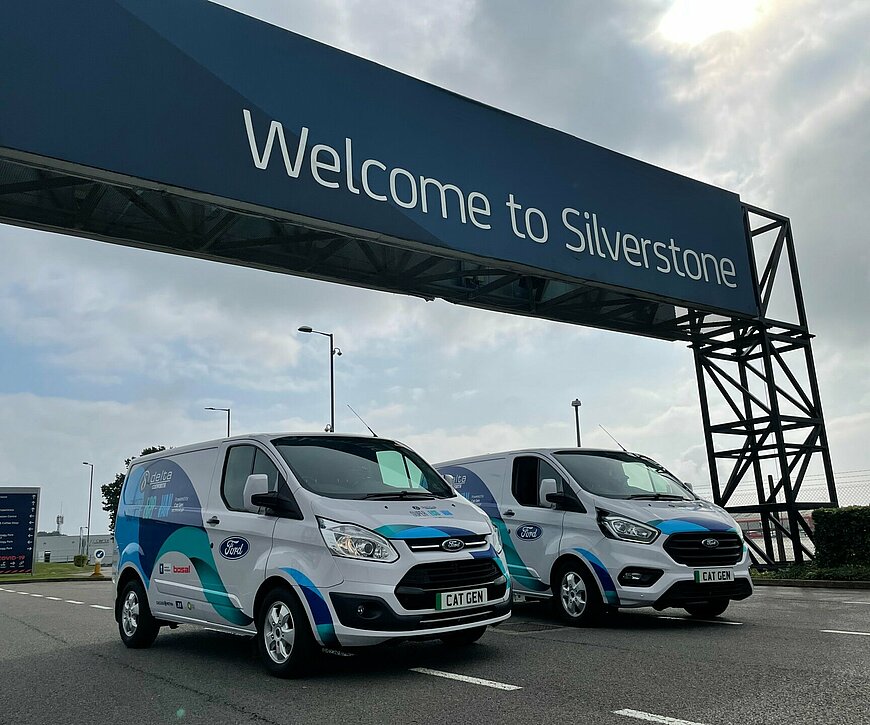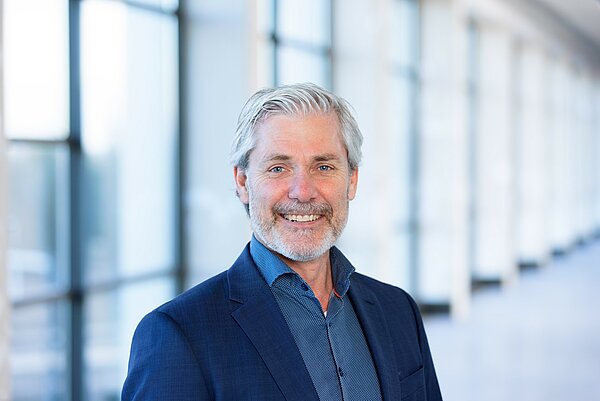Fuel cell technology and microturbines are going to make the automotive industry CO2-neutral

During the Pioneers in Mobility month, we are posting stories that form part of our innovative ecosystem and which contribute to our mobility aspirations. This time: Bosal.
Bosal is currently researching the quickest way to a creating a CO2-neutral industry and how more cars with new and cleaner technology can be brought to the market more quickly. Batteries have limitations: batteries are heavy and expensive. The company is hard at work on a solution for both passenger cars and heavier vehicles.

Ted Straten is Vice President of Technology, Strategy and New Business at Bosal. "The most fun job in the Netherlands," he explains enthusiastically. He assesses products, business models, new markets and the footprint of Bosal. This is how he draws up a strategy that will enable the company to continue for the next hundred years. "We have spent the last hundred years helping to make the world a little bit cleaner by developing exhaust systems to lower emissions and reducing the noise of cars. Nowadays, we are also focusing on the development of fuel cells."
Heavier industry
"The trucking industry as well as the agricultural and construction sectors are saying: we cannot switch to fully battery-powered machinery and vehicle fleet. They are asking for a technology that can help them in an affordable way to become carbon-neutral." Bosal is working on the development of specific fuel cell technology.
Bosal already supplies components for fuel cell systems for the energy sector. "We have the technology in house to handle the complete heat management around the fuel cell. At the core of the cell are the fuel cell stacks, but everything surrounding it has to do with recovering heat and preheating air and fuel. This is how we have developed heat exchangers over the past twenty years that are extremely efficient, sustainable and compact." Their technology is already being widely used in the transition of the energy sector.
The cost of fuel cell technology will continue to come down over the next five to eight years, Straten expects. "In the energy sector, 1.5 trillion US dollars is involved every year. They are betting heavily on fuel cells, so that makes it cost-effective for other sectors as well. That's an opportunity we at Bosal are capitalizing on."
Smaller, more compact and cheaper
Because a lot still needs to be done before the fuel cell technology now being used in the energy sector is capable of being used in mobile vehicles. The energy sector, in fact, has few requirements in terms of weight and size. For the automotive industry, the basic technology needs to be made smaller, more compact and cheaper.
Together with the Netherlands Institute for Applied Scientific Research(TNO), the University of Groningen, VDL-ETS, Drive Line Systems (DLS), Circonica, GINAF and Vialle, Bosal is exploring how the current technology can be put into a form that is suitable for the automotive industry. "With this Dutch group of companies and knowledge institutes, we intend to develop a complete fuel cell system that meets all the requirements that application in the automotive industry demands. This mainly concerns the stacks, the high-temperature heat exchangers, the fuel system and the software."
Passenger cars
The passenger car industry has been heavily involved in the development of electric cars. There are now about fifty models on the market. The problem is that they are about 10 to 15 thousand euros more expensive than non-electric cars. The smaller A segment cars are in danger of being phased out due to the expensive battery packs. Straten: "So, the conclusion is that cheaper electric cars will have to come on the market."
Research into car use shows that 95 percent of use involves trips of less than one hundred kilometers a day: running errands, commuting to and from work or taking the kids to school. "So why should you develop a battery pack with a radius of 500 kilometers? It's much better to develop a lighter pack that can run for 100 kilometers, so you can cut down on 75% of the costs and weight," Straten states. What's more, the entire manufacture cycle of the car will be cheaper, because fewer heavy materials are needed.

Microturbine
Bosal is working with Cosworth on a microturbine, a small compressor turbine machine no bigger than two shoeboxes. The turbine acts as a generator that kicks in at the moment that the battery is (almost) empty in the five percent of cases where a trip lasts longer than 100 kilometers. The generator is flexible: it runs on hydrogen, but also on petrol or diesel. "It is a technology that is not dependent on the transition that fuels are undergoing," Straten adds.
Ninety-five percent of the time the car runs on electricity, the remaining five percent it runs on fuel. The technology also provides some relief in case of overstretched battery production. "You can use the same number of batteries to manufacture forty instead of ten electric cars."
At the moment, two Ford Transits are driving around the UK with this kind of microturbine on board. Straten estimates that it will take another two years to fully integrate the technology and that a smaller battery pack and on-board charger will appear on the market within five years.
An open mind
"We need other companies to drive the transition towards alternative technologies, fuels and uses of vehicles." Moreover, Straten believes that new technologies should be looked at with an open mind. " As a society, we are not helped by a one-sided view of technology. I sometimes hear people exclaiming that everything should run on batteries. But our customers are telling us that this is not possible at all. There are more solutions than just batteries. Therefore, we have got to make sure that the discussion about the energy transition - however quickly it must happen - does not become polarized." Financial support is also needed from the government to make research possible. "Subsidies help us to get research up and running faster. Under our own steam, it takes much longer."
Finally, Straten believes it is important not to lose sight of the existing vehicle fleet: "We should not just focus on new technology and replace all the machines and vehicles out there, but also make the existing fleet cleaner. For instance, a modern diesel engine can be converted to run on synthetic diesel with relatively little effort. You can make synthetic fuels more sustainable."